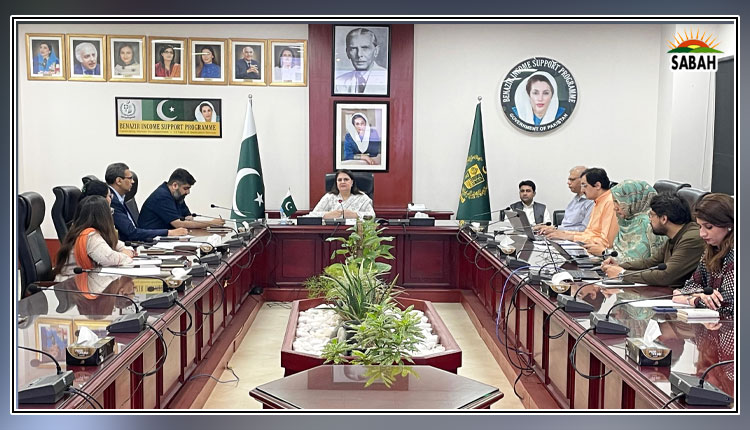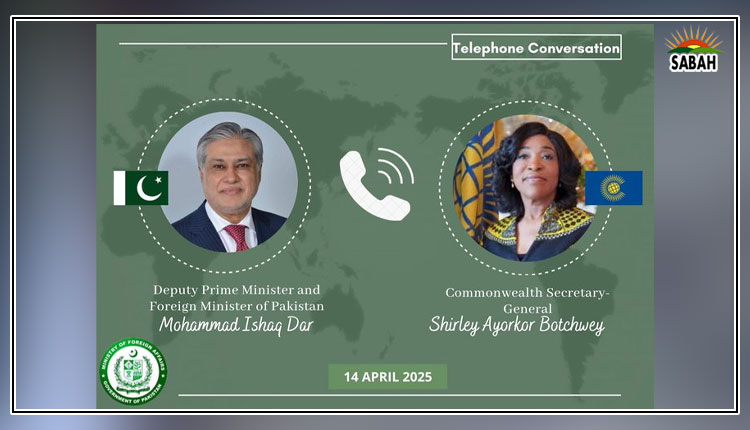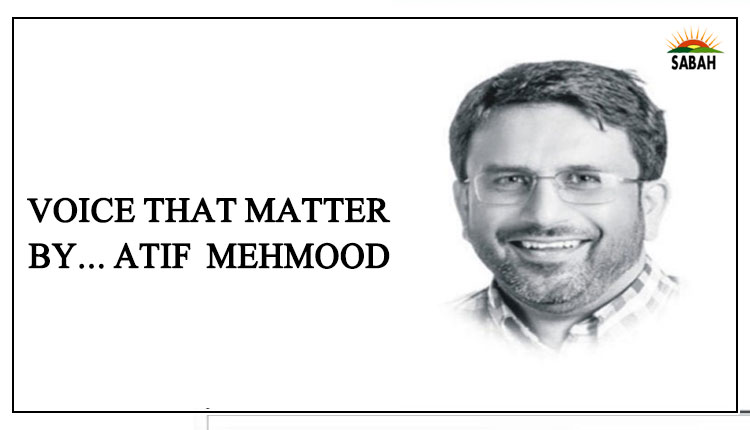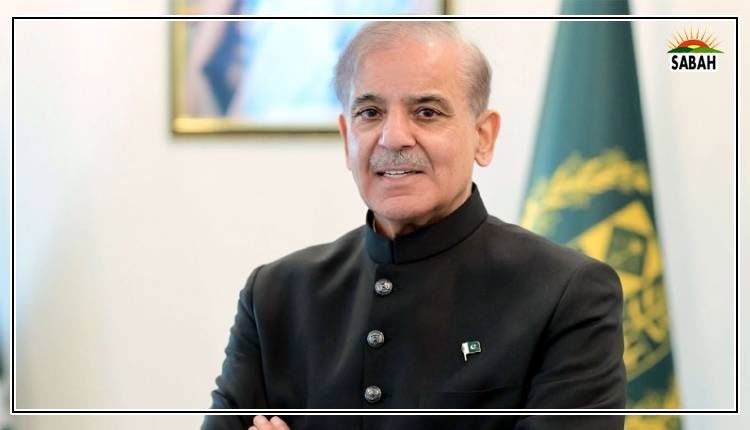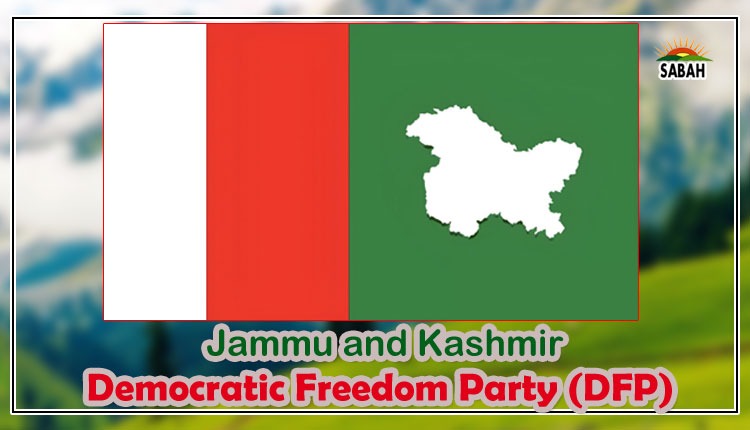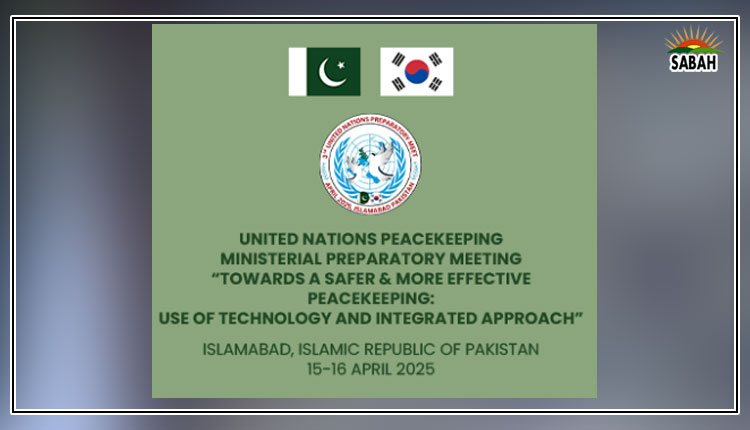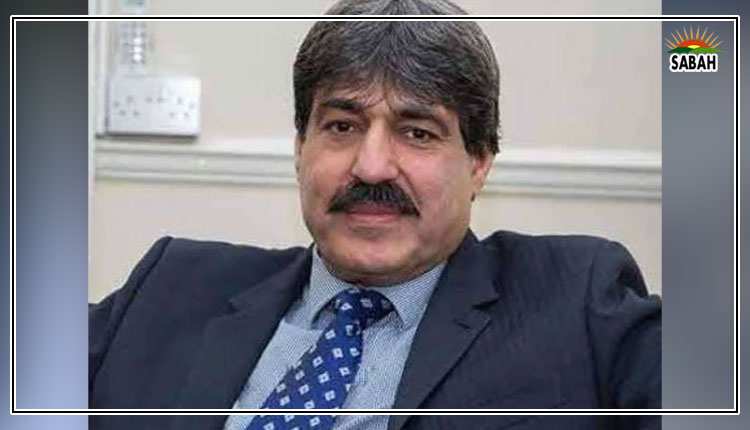Pakistan grapples with U.S. tariff shock: SDPI hosts policy seminar to chart economic response
ISLAMABAD, April 07 (SABAH): The experts on Monday at a high-level policy seminar in the aftermath of 29% US trade tariff imposed on Pakistan among 180 nations across the globe demanded the government to embrace a diversified trade approach and a broadened vision to explore existing regional trade potential to ward off severe impacts of prevailing trade tariffs by the Trump Administration.
The Sustainable Development Policy Institute (SDPI) convened the critical policy seminar titled “Tariff 29%: What Does It Mean for Pakistan?” to examine the implications of the 29% tariff imposed by the United States (US) on Pakistani exports, with a particular focus on the textile sector. The seminar gathered top economists, trade experts, industry stakeholders, and government representatives to assess the challenges and identify pathways for turning the crisis into an opportunity.
In his welcome remarks, Dr. Sajid Amin Javed, Deputy Executive Director of SDPI, emphasized the critical timing of the dialogue: “The objective is to assess whether the tariff is a threat or an opportunity, and what needs to be done to mitigate immediate impacts while preparing for long-term structural shifts.”
He added that The 29% tariff, part of the Trump administration’s broader reciprocal tariff regime affecting over 180 countries, is especially damaging for Pakistan, whose exports to the U.S. account for 19% of its total exports, with textiles alone making up over 70% of that share. Although lower than tariffs on Bangladesh (36%) and Vietnam (46%), Pakistan’s rate is higher than India’s 27%, making the trade environment highly competitive.
In his special remarks, Dr. Manzoor Ahmed, a veteran in trade and customs, traced the history of U.S. tariff policy and warned that the current global environment requires bold recalibration:
“Pakistan’s narrow export base—dominated by textiles—leaves it vulnerable. Our over-reliance on protectionist policies and outdated SROs must be revisited. We need free and preferential trade agreements, especially with the U.S., and SDPI should guide the government toward a diversified export strategy.”
He stressed that Pakistan’s exports make up only 10% of GDP, in stark contrast to Vietnam’s 100%, and that international trade contributes over 40% of Pakistan’s revenue, highlighting the urgency for reforms.
Dr. Aadil Nakhoda of IBA highlighted the escalating trading costs and the lack of priority for textile products in U.S. trade talks, calling for modernization and technological integration in Pakistan’s exports:
“Vietnam’s electronics sector is an example. Pakistan must shift towards a broader export mix, including agriculture, services, and technology.”
Hassan Shafqaat, CEO of the Pakistan Textile Council, called the tariff regime both a threat and a potential opportunity. He suggested:
“We must negotiate with the U.S., provide compensation where needed, and explore relocating production from countries hit harder by tariffs to Pakistan. Plastics, leather, and automobiles are sectors that can attract foreign investment in manufacturing.” He also recommended tagging products as “Originated in US” to reduce duties, intensifying diplomatic efforts, engaging institutions like the WTO, and forming new regional alliances. Lastly, he advised exploring the US tariff order’s annexed duty-free lists for potential benefits. He urged the government to view the situation as both a short-term threat and a long-term opportunity, especially as China appears most affected. Shafqaat stressed the need for Pakistan to address its high energy costs and tax rates through joint public-private solutions.
Samir S. Amir of the Pakistan Business Council noted inefficiencies in Pakistan’s manufacturing sector, citing high yarn waste in towel production and low per-unit apparel prices: “Instead of blanket subsidies, we need targeted reforms. Let’s shift the conversation from trade threats to trade potential within South and Southeast Asia.”
Muhammad Suleman Khan, Director of Tariff Policy at the Ministry of Commerce, assured that the government is actively evaluating the impact and working on strategic responses: “We are in constant contact with global trade counselors, and a dedicated committee has been formed by the Prime Minister. There’s no need to panic.”
In his concluding remarks, Dr. Sajid Amin Javed emphasized the importance of symbolic yet strategic policy measures, calling on the government to articulate its position clearly at both domestic and international levels. He described the current situation as a “defining moment,” and urged collaboration across the private sector, public institutions, and civil society to respond with unity, resilience, and foresight.


